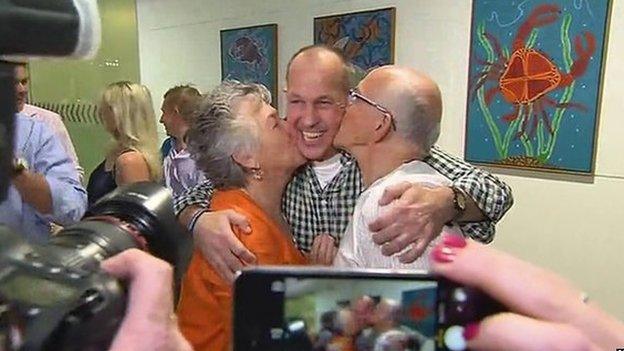Egypt Court freezes assets of human rights workers and NGO's
- Published
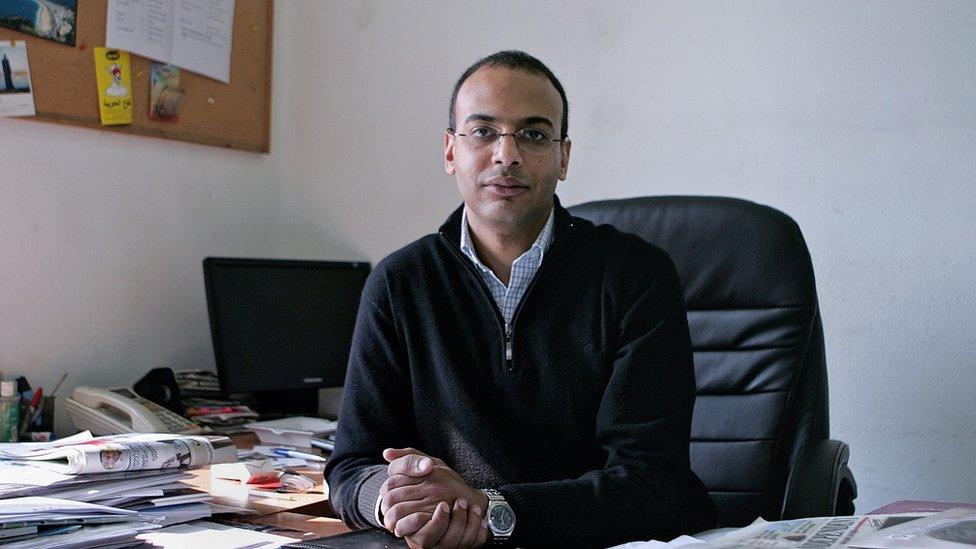
Hossam Bahgat founded the leading Egyptian Initiative for Personal Rights
A court in Egypt has ordered a freeze on the assets of five prominent human rights activists and three non-governmental organisations.
All are accused of receiving foreign cash in a case stretching back to 2011.
If convicted, they could face up to 25 years in prison. A prominent rights campaigner, Hossam Bahgat, is among those whose assets have been frozen.
The UK-based human rights group Amnesty International called the ruling a "shameless ploy" to silence activism.
The other four activists named in the court ruling include Gamal Eid, Bahey el-Din Hassan, Mustafa el-Hassan and Abdel-Hafiz Tayel.
The five face charges of illegally receiving foreign funds and using them to harm national security.
The NGOs that have had their assets frozen are the groups three of them were leading.
'The law took the day off'
"We can live under threat, but we will not collude with a police state that despises human rights," Mr Eid wrote on his Facebook account after the ruling, referring to the 2011 uprising that toppled President Hosni Mubarak.
He said the decision sent a message to civil society campaigners to toe the line or else.
The initial case into foreign funding of NGOs was launched amid a crackdown against civil society groups after the uprising in early 2011 that left the military in charge.
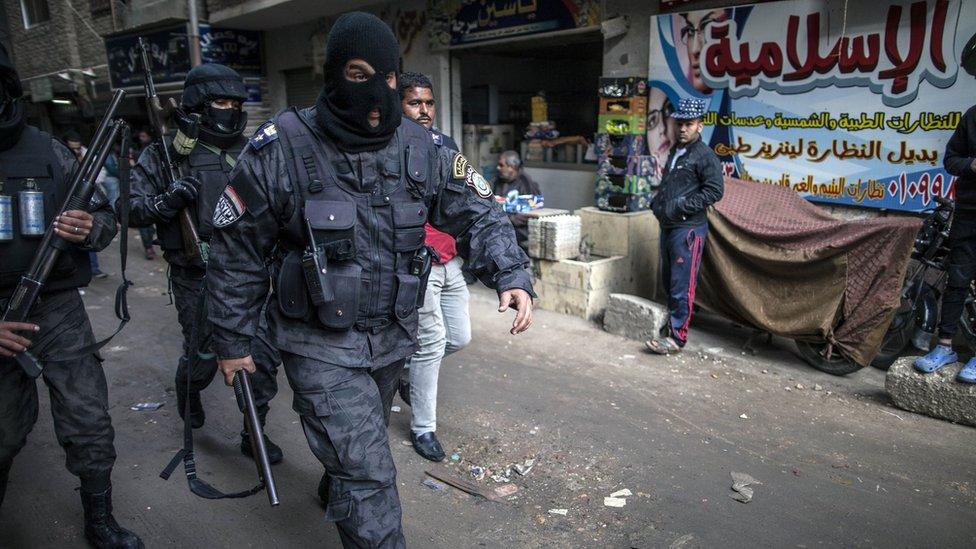
Police special forces patrolled the streets of Cairo on the fifth anniversary of the 2011 uprising earlier this year
Security services said rights activists were plotting against the country.
The attack on rights groups intensified after the military overthrew Mohammed Morsi, an elected Islamist president, in 2013.
Authorities have jailed thousands of people, mainly Islamists but also leading secular and liberal activists behind the 2011 uprising.
As well as Amnesty International, Human Rights Watch and the European Union have condemned the ruling.
- Published6 May 2016
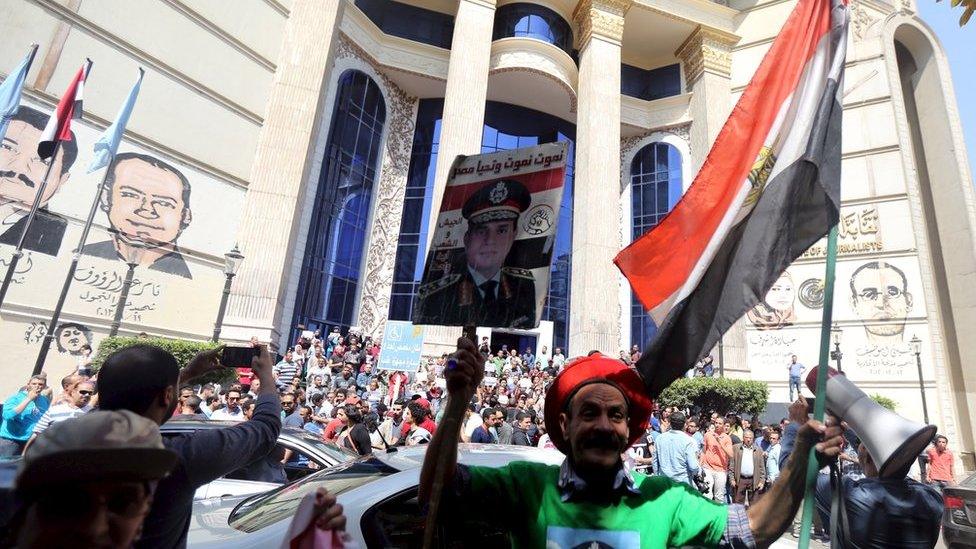
- Published13 July 2016
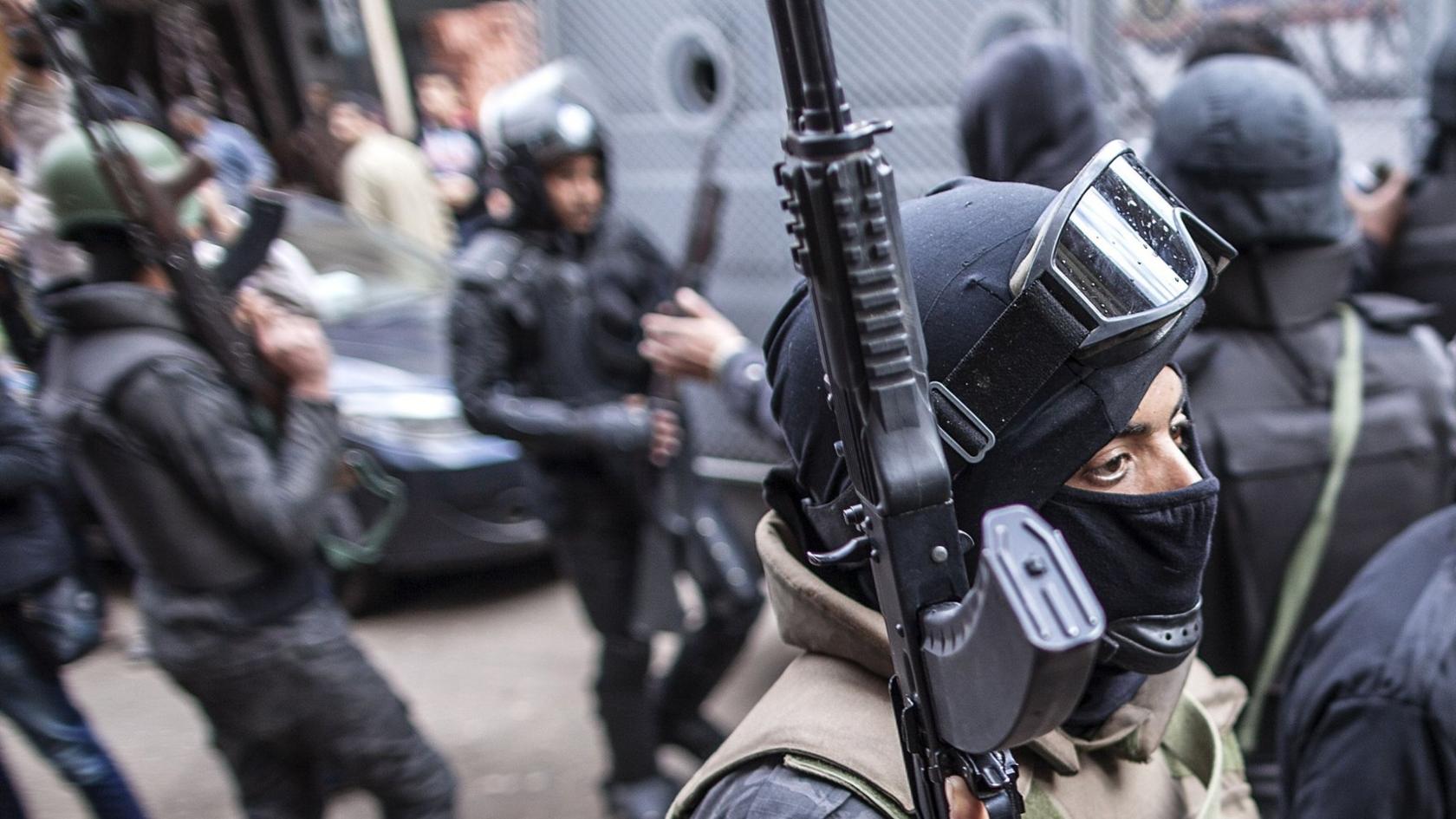
- Published25 April 2016
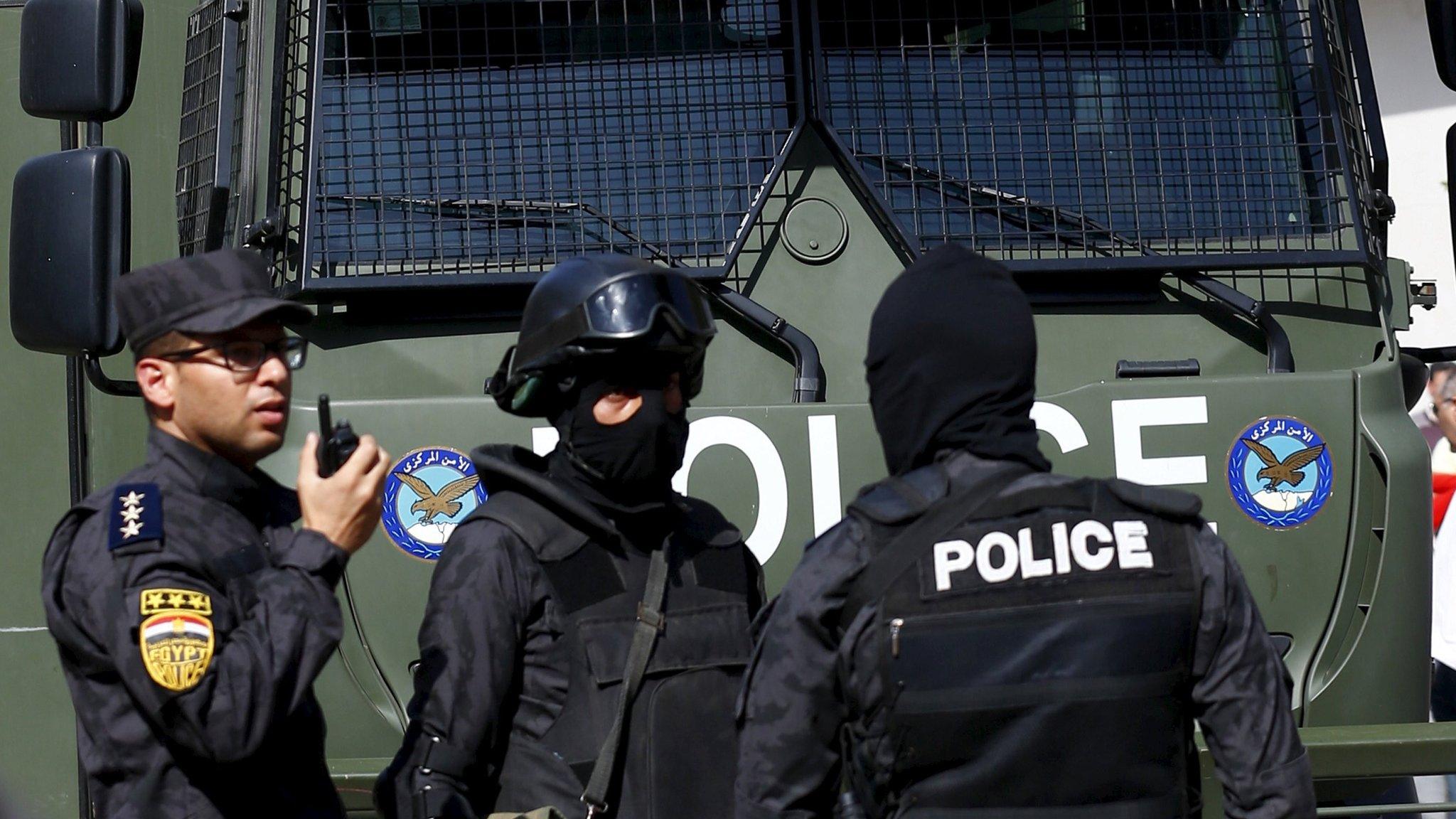
- Published25 April 2016
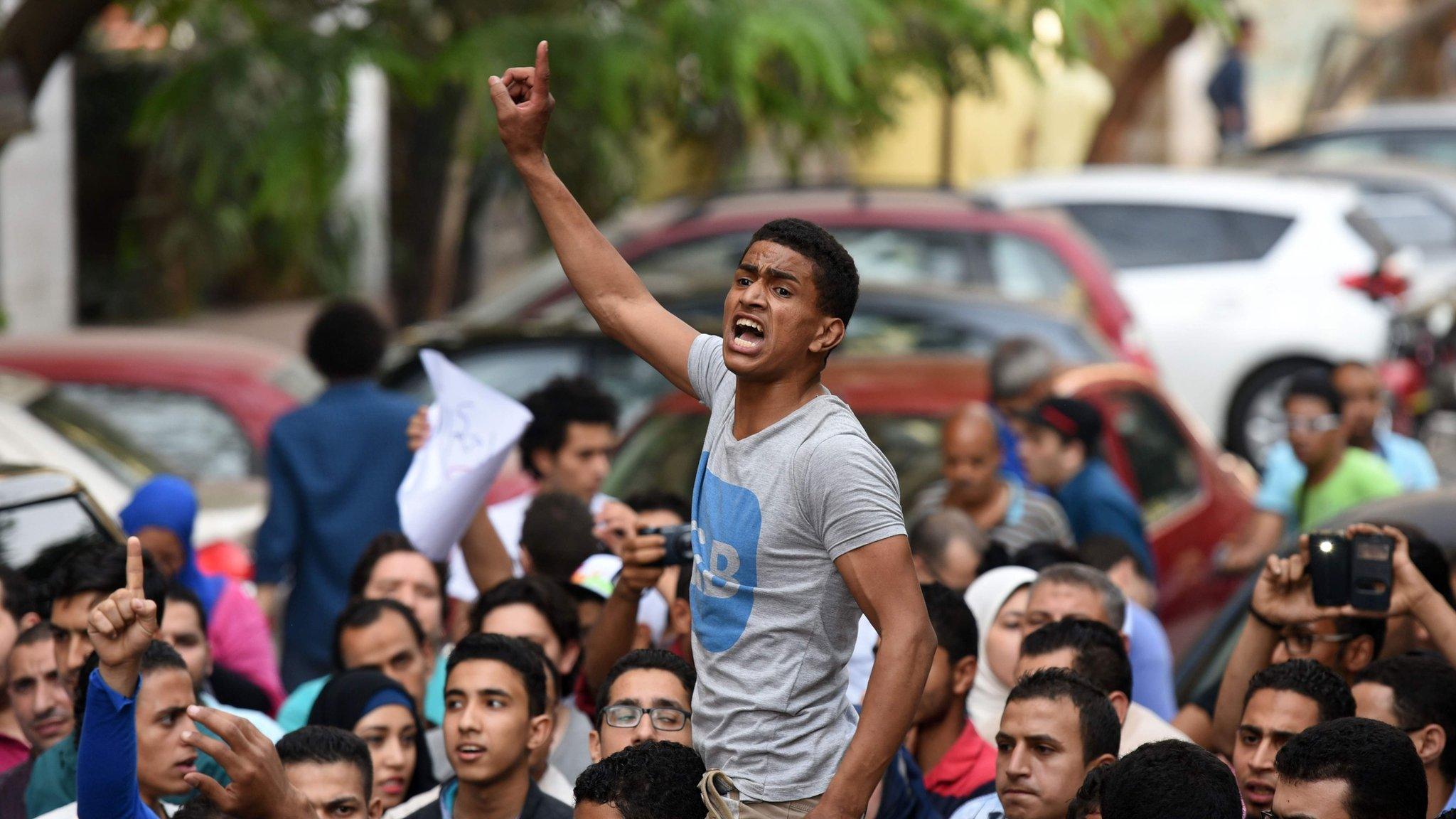
- Published5 February 2015
